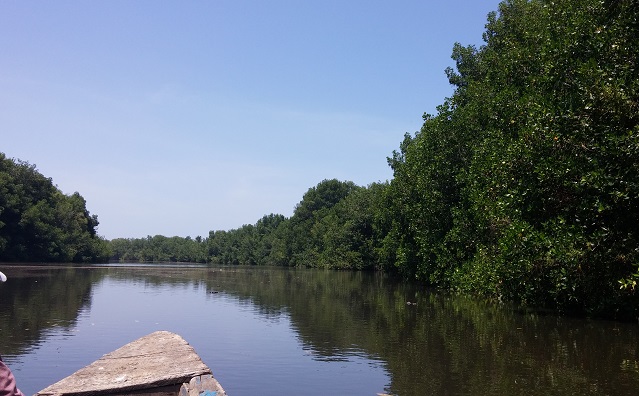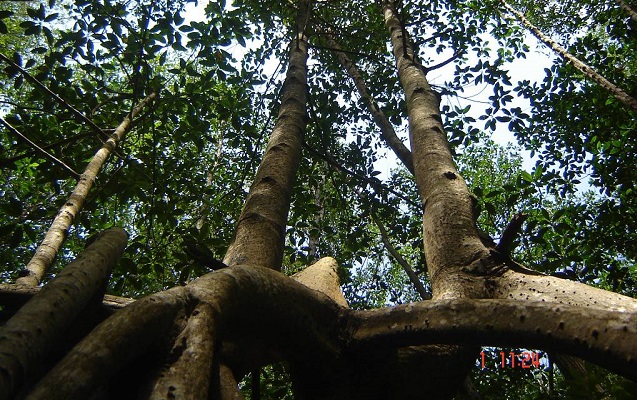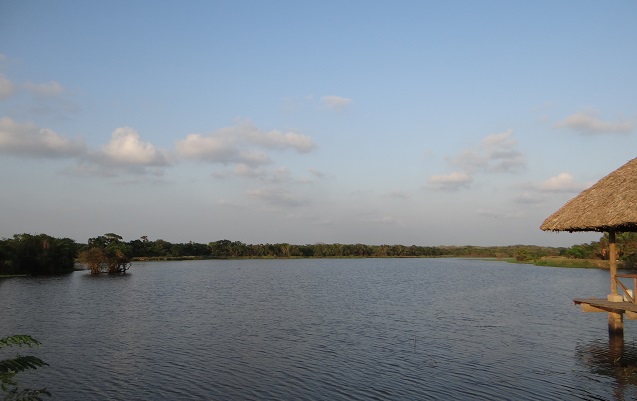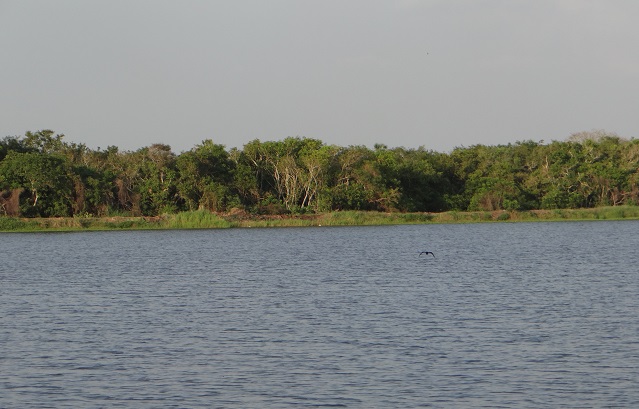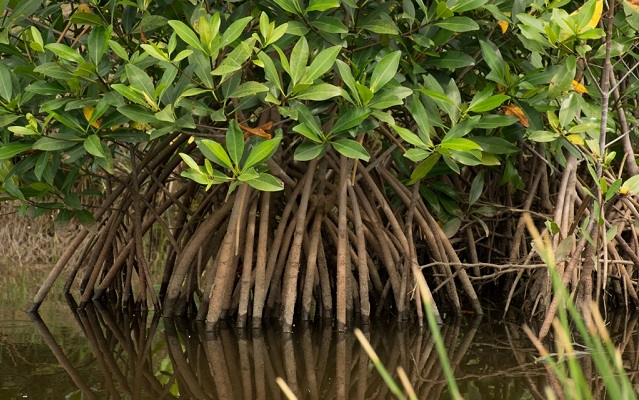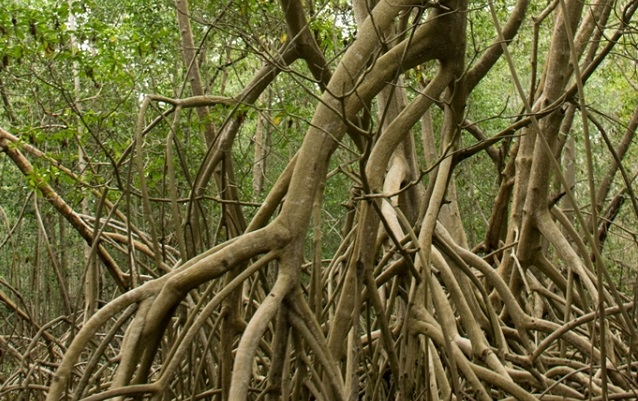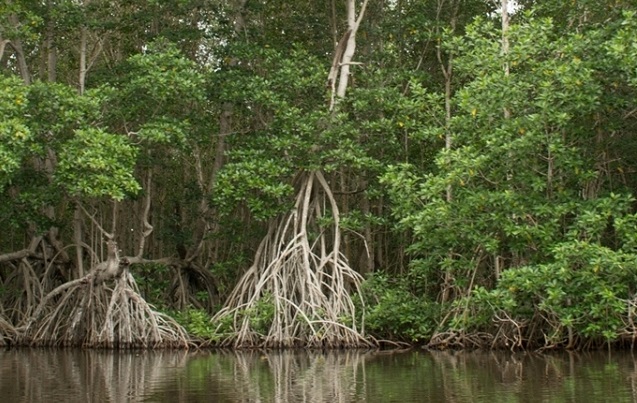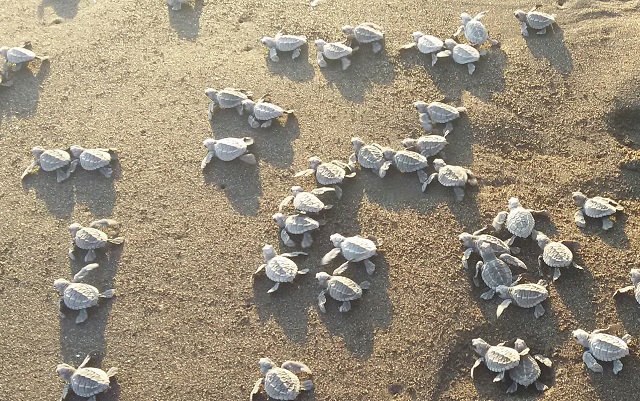Tree corridors as a voluntary conservation initiative in Guatemala
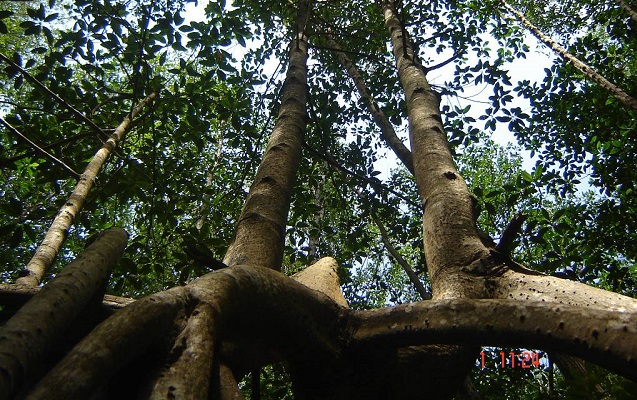
The southern coast and eastern regions of Guatemala are of ecological importance and provide relevant ecosystem services. To ensure the sustainable use of these ecosystems, actions involving multiple sectors of society must be implemented. This IKI Small Grants project promotes the conservation of vulnerable forest ecosystems of the south coast and east of Guatemala by strengthening the network of protected areas through capacity building in neighbouring communities. By doing so, the project enables the valuation of biodiversity and its sustainable use, and promotes the involvement of the private sector.
INITIAL SITUATION
The southern coast and eastern regions of Guatemala are home to vulnerable ecosystems, threatened several times by overexploitation of soils. Agricultural encroachment, excessive deforestation, and overgrowth of human settlements all add on to the overexploitation of soils. Additionally, both regions are susceptible to forest fires. The Mangroves located along the southern coast is an ecosystem that provides multiple environmental services and are used as a source for work and food. The eastern region is home to several types of ecosystems, such as humid forests, pine-oak forests, and dry forests. The restoration of degraded areas is essential to ensure the provision of ecosystem services that allow the development of local communities and the effective conservation of biodiversity.
TARGET GROUP
This IKI Small Grants project targets owners of at least 15 private and community-based natural reserves located in the southern coast and in the east of the country. The direct beneficiaries are around 200 families who are the owners and inhabitants of the three project communities surrounding the reserves.
APPROACH AND ACTIVITIES
The project is identifying potential nature reserve owners through neighbour meetings and informative workshops. They are then to be included in the nature reserves local network. Before establishing the conservation agreements with the nature reserve owners for conservation commitments, each potential conservation area is registered, and its current state of the area elaborated. In total, the project aims to have at least 10 signed agreements for the 700 targeted hectares. In accordance with the management plan, conservation measures are implemented. To achive the restoration of 100 hectares of degraded forest on the southern coast and in eastern Guatemala, the Association of Private Natural Reserves of Guatemala (ARNPG) identifies areas for restauration and implements restoration actions with around 50 mainly young people from the surrounding communities. Through trainings, reserve owners and personnel learn to monitor and track the restoration process and the recovery of biodiversity in the area.
The project includes a capacity building plan to improve the conservation and sustainable management of natural resources. To share the results with other landowners and local communities, the organisation develops technical and audio-visual material. Fifteen training workshops for the project communities and private reserve owners ensure the exchange of experiences. At least 200 nature reserve owners can participate in the capacity building measures.
ARNPG designs a compensation mechanism with private financing for the conservation of mangrove ecosystems. For this, the organisation identifies private institutions that associate their production with the services provided by the mangrove ecosystem and forms a working group of at least five private and non-governmental institutions to define the common objectives and main actions for the design of the financing mechanism. Once the mechanism is designed, owners of natural reserves, local leaders, and private initiatives validate it through participatory informative workshops to further implement it.
GALLERY
CAPACITY DEVELOPMENT
IKI Small Grants supports ARNPG in their organisational capacity development through a social and environmental conflict management training.
ABOUT THE ORGANISATION
The Association of Private Natural Reserves of Guatemala (ARNPG) is a non-governmental, apolitical, and non-profit organisation, focused on the conservation and sustainable management of natural resources and biodiversity in individual and community voluntary natural reserves. Joint action, inspired by shared convictions, benefit the owners of the reserves and society. This promotes the continuity of life for current and future generations.

